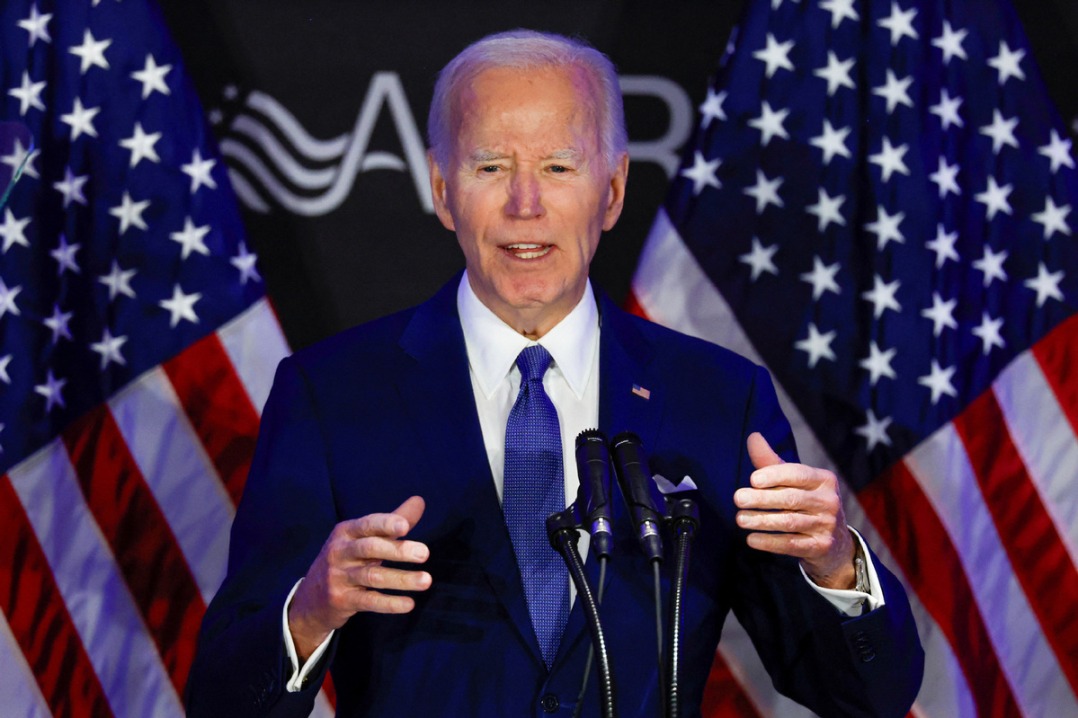US bill to address virus-related hate against Asians


Democratic lawmakers say they will introduce a new bill addressing the ongoing hate and violence targeted toward Asian Americans amid the COVID-19 pandemic.
The bill, named the COVID-19 Hate Crime Act, announced Thursday by Democratic Representative Grace Meng of New York and Democratic Senator Mazie Hirono of Hawaii, would create a new position at the US Justice Department to handle review and oversight of hate crimes related to the pandemic.
"The ongoing anti-Asian hate crimes and incidents, especially against our elderly Asian Americans, is absolutely horrific. I am honored to introduce the COVID-19 Hate Crimes Act with Senator Hirono to address this disgusting pattern of hate," Meng said in a statement.
Meanwhile, a new study based on police department statistics across major US cities found a nearly 150 percent surge in anti-Asian hate crimes in 2020, while overall hate crimes fell by 7 percent. The numbers reflect a growing trend of discrimination against Asian Americans during the coronavirus pandemic.
The report released this week by the Center for the Study of Hate and Extremism at California State University, San Bernardino, examined hate crimes in 16 of America's largest cities and found the first spikes rose alongside coronavirus cases in March and April. New York City saw the highest jump, rising from three to 28. Boston and Los Angeles followed, with increases from six to 14, and seven to 15, respectively.
The bill also would issue guidance for state and local law enforcement agencies to establish hate-crime online reporting systems and public education campaigns in multiple languages. It also would release guidance to describe best practices to mitigate racially discriminatory language in describing the COVID-19 pandemic.
"Although President [Donald] Trump has left office, his past rhetoric and use of disparaging terms such as ‘Chinese virus' and ‘kung-flu' continues to heighten people's fears of COVID-19, and fuel everything from verbal assaults to physical attacks towards those of Asian descent," said Meng.
The Asian American Bar Association of New York and the group Stop AAPI Hate, an initiative that tracks violence and harassment against Asian-Americans and Pacific Islanders (AAPIs), have recorded an increase in hate crimes since the start of the pandemic.
The bar association found more than 250 incidents of discrimination against Asian Americans in New York in 2020, ranging from verbal harassment to physical assault.

Stop AAPI Hate received reports of more than 2,800 incidents of discrimination or attacks against Asian Americans, according to a report it released in February.
"We've seen the horrifying consequences of racist language as AAPI communities across our country experience hate crimes and violence related to the pandemic," Hirono said in a statement.
"The COVID-19 Hate Crimes Act addresses the surge in violence against AAPI communities by dedicating an official at the Department of Justice to expeditiously review hate crimes reported to law enforcement. The bill also provides resources for communities to come together and fight intolerance and hate. This is no less than victims deserve," she said.
She told USA Today that the act would likely pass the Democratic-controlled House, but "we shall see" whether it could gain traction in the Senate, where at least 10 Republicans would need to join all 50 Democrats to block any filibuster procedural roadblock.
Meng announced her first resolution to denounce anti-Asian hate related to the coronavirus in March 2020, when the pandemic just hit the country, and it was passed by the House in September. Last month, Meng reintroduced an updated version of her original resolution. The bill announced Thursday is a revised version of legislation introduced but not passed in the last Congress.
Meng believes there is "more momentum" this year to pass the legislation and is confident that President Joe Biden's administration would be a better partner on addressing anti-Asian American hate incidents than the Trump administration, according to USA Today.
Biden has signed executive orders to address anti-Asian sentiment, and lawmakers from the Congressional Asian Pacific American Caucus have requested a meeting with the administration to discuss the orders' implementation, though the meeting has not yet been scheduled.

































